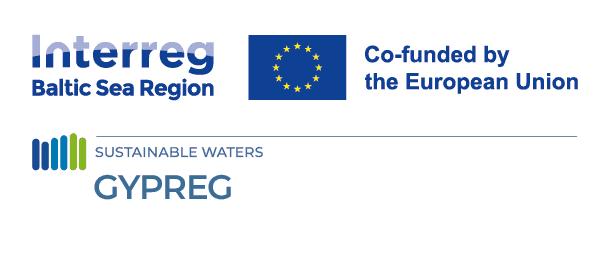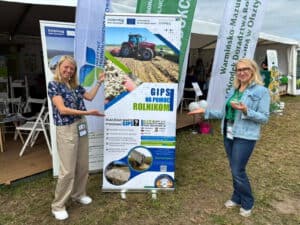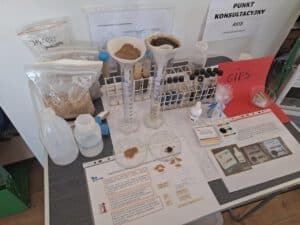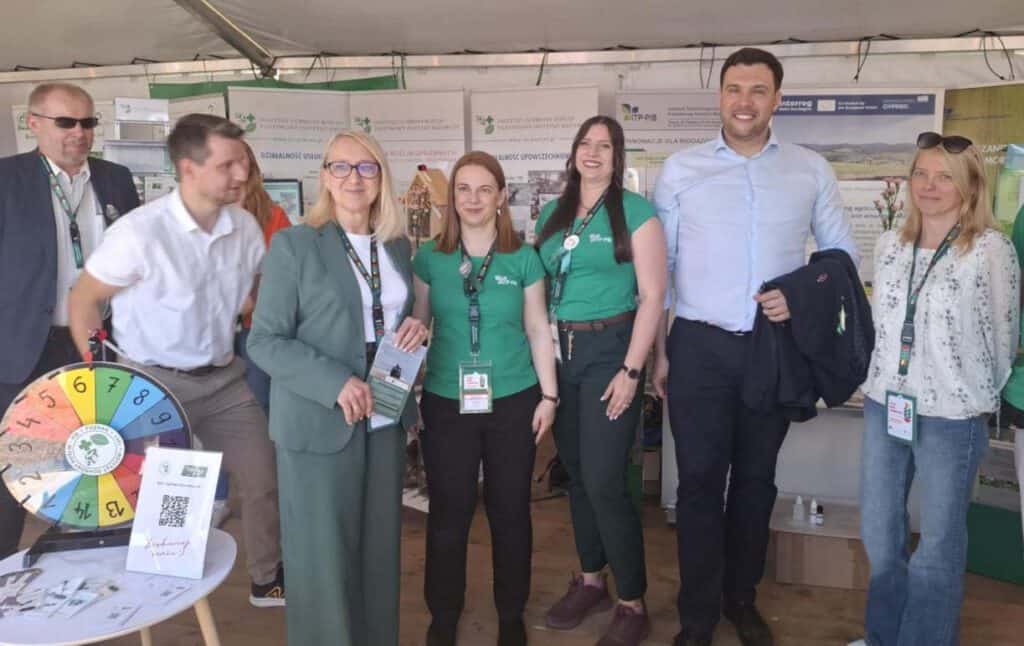
Polish Policymakers Briefed on Gypsum at National Field Days
27 June 2025

© ITP-PIB
This year, the annual National Field Days were held at the Łódź Agricultural Advisory Centre in Bratoszewice, bringing together experts, farmers, and government officials to explore developments and sustainable practices in Polish agriculture. The event opened under sunny skies and attracted many visitors, including exhibitors and rural enthusiasts. The venue was filled with agricultural equipment, livestock displays, and educational exhibits.
Gypsum as a One Solution for Baltic Protection
A key highlight was the presentation of an international research project GYPREG aimed at reducing

© ITP-PIB
phosphorus runoff into the Baltic Sea. Researchers are testing the use of gypsum in farmland soils to improve soil structure and minimize nutrient loss.
“We are testing gypsum as a soil additive to reduce phosphorus runoff from fields into water — including the Baltic Sea — and to improve soil health. Laboratory tests show up to 20% less phosphorus runoff and 30% better soil structure (quantity of stable aggregates) when gypsum is added,”
explained Beata Grabowska-Polanowska, adjunct of the Institute of Technology and Life Sciences of the National Research Institute (ITP-PIB), Kraków branch.
These findings highlight gypsum’s potential as a cost-effective and environmentally friendly solution, not just for farmers but also for policymakers working to combat water eutrophication. Experts emphasized the importance of raising awareness among political leaders to support broader implementation of this practice.

The Polish Deputy Minister of Agriculture and Rural Development Mr. Adam Nowak (second from the right) and Ms. Grabowska-Polanowska (third from the left) with other GYPREG project representatives from ITP-PIB. © ITP-PIB





